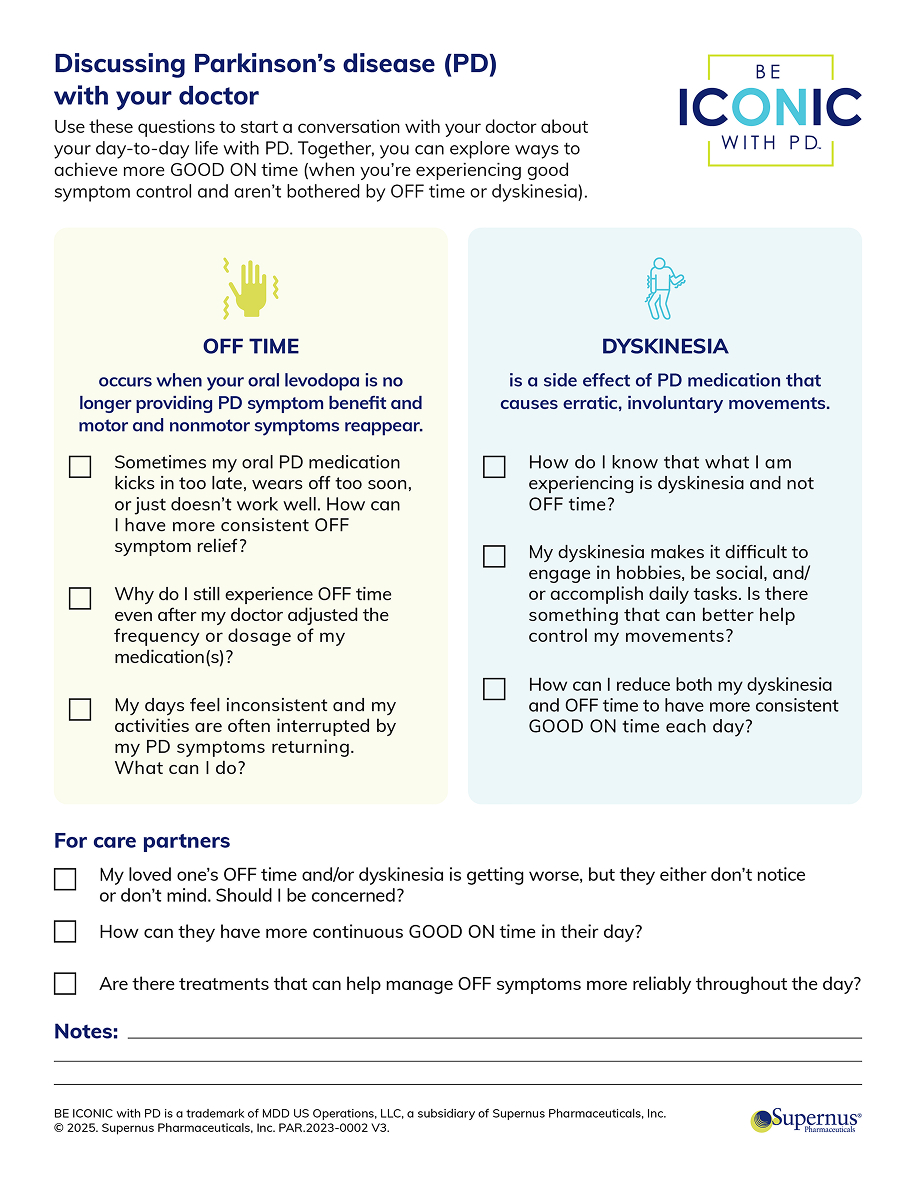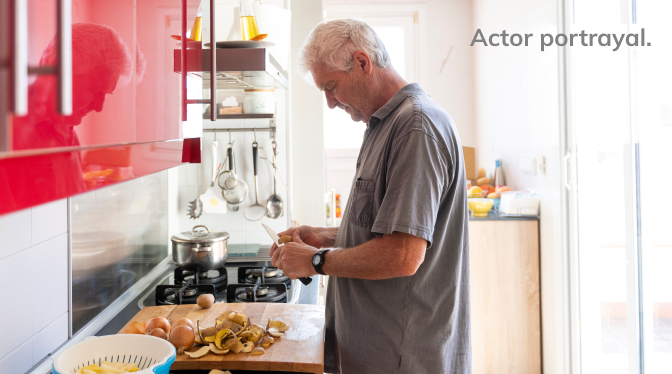
Questions to ask at your next
appointment
Use the questions relevant to your situation as a starting point for discussions with your doctor about your PD symptoms.
Strategies for living well with Parkinson’s disease (PD)
Diet, exercise, and sleep can play an important role in living with PD. Read some practical tips on how you can eat right, live well, and BE ICONIC with PD.
Did you know some symptoms of PD may respond to adjustments in diet?
While there is no specific “PD diet,” it is advisable to avoid fad diets and focus on balanced nutrition and adequate hydration. Some symptoms of PD may respond to adjustments in diet, including:
Constipation: More fluids and fiber may help with staying regular
Low blood pressure: More salt and/or fluids can raise blood pressure; patients with heart or kidney issues should consult their doctor
Swallowing problems: Softening foods or stimulating swallowing via seasoning additives may improve swallowing problems
Diet and gastrointestinal issues can also have an impact on how well oral levodopa works.
Stay active
People with PD have been shown to be nearly one-third less active than their peers without PD. Physical inactivity can have negative consequences in PD—particularly on nonmotor symptoms, such as constipation and insomnia.
Staying active is key to more GOOD ON time in Parkinson’s.
Consider an exercise routine that incorporates flexibility, resistance training, and aerobics, such as:
Tai chi
Pilates
Yoga
Rock Steady Boxing, with exercises designed specifically for people with PD.
Find classes in your area here.
Parkinson’s sleep problems may detract from GOOD ON time
- People with PD appear to be more susceptible to sleep problems, with nearly two-thirds reporting that they struggle with sleep.
- Disturbances in dopamine regulation and presence of mood symptoms, such as depression and anxiety, may be contributing factors.
Specifically, people with PD are more susceptible to:
- Disruptions in sleep patterns
- Restless leg syndrome
- Sleep apnea
- Frequent nighttime urination
Try these best practices for a restful sleep:
Keep a regular schedule
Avoid caffeine and alcohol later in the day
Create a bedtime routine
Exercise earlier in the day
Limit naps



